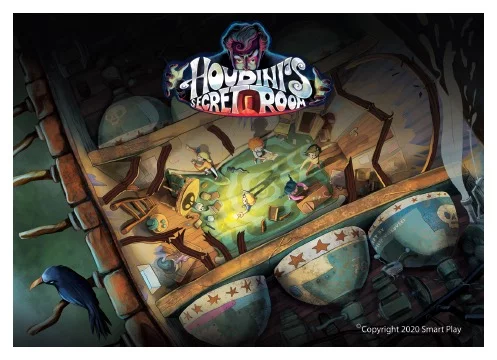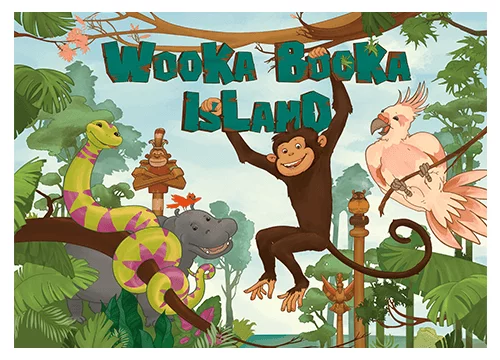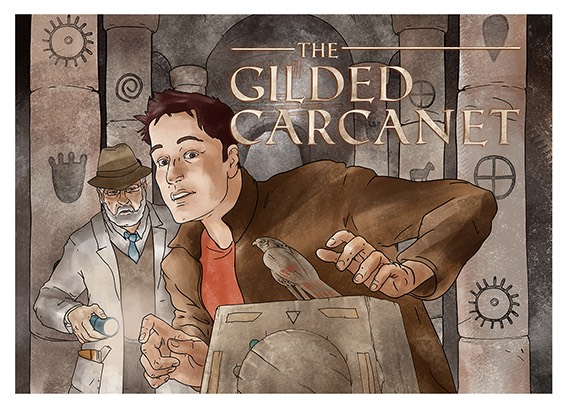Mind games for kids help them improve cognitive skills, including attention, focus, memory, and concentration. We know learning is not always fun. But it can be. And that is where brain games for kids come in handy.
These games help your kids learn in a fun way. All of these mind development games and activities will keep your child away from screens. At the same time, they help kids develop their thinking skills, problem solving skills, and more.
Play is an integral part of development. Nowadays, children do not play just to entertain themselves. They are constantly learning through play.

Why Should You Play Brain Games for Kids?
Let’s summarize all the benefits of playing brain games and mind development games for kids. Here are all the benefits:
- Increased creativity
- Improved analytical thinking
- Improve problem-solving skills
- Improve critical thinking skills
- Conceptual learning
- Improved lateral thinking
- Linguistic enhancement
- Comprehension
- Improved spatial awareness
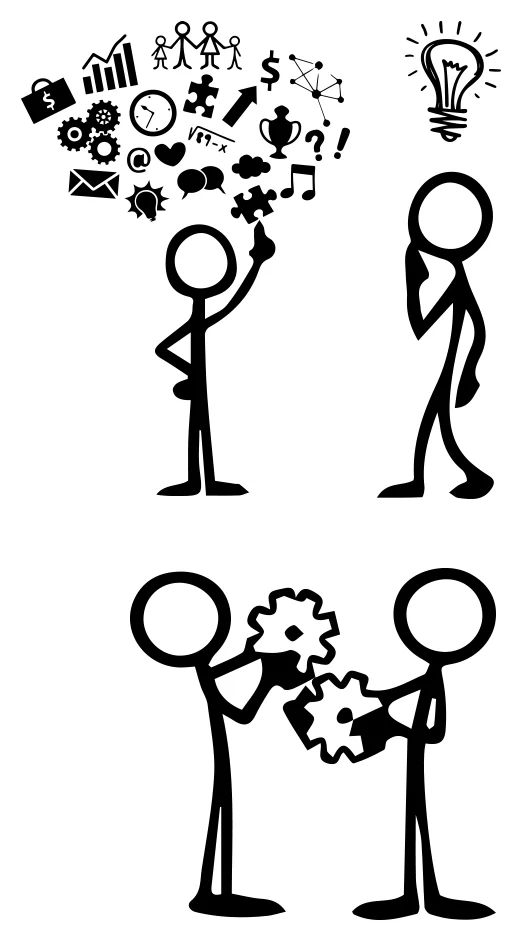
Now let’s check out some of the best brain games for kids.
1. Blocks
Sometimes, all you need is a simple and, basic game. Blocks are best best-suited for kids aged between 2 and 4 years of age. They remainBlocks are a basic brain game. Used since the beginning of time, blocks expose your kids to different colors and sizes.
Your toddler can explore the blocks and let their imagination wander. Blocks expose kids to developmental areas like shape recognition, color recognition, creativity, spatial awareness, and more.
Start with basic color and shaped blocks for younger children and move up as they age.
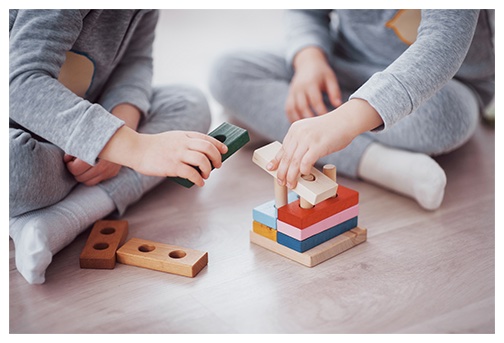

2. I Spy Game
This classic game is great for kids aged five and older. It is a type of brain development game that helps your children understand how to follow instructions. But it also enhances their attention, develops language, and increases spatial awareness.
You can play I Spy anywhere and anytime. Just set the rules, like things in a certain category that they have to find, category, and then play.
3. Scavenger Hunt
If you want your kids to improve their problem-solving skills, set up a scavenger hunt. You can set up the hunt in your home, outside in the backyard, or anywhere else.
A scavenger hunt is a great game you can play when you want to increase the value of a reward. For example, the reward might be a birthday gift for your kid. Let them find it.
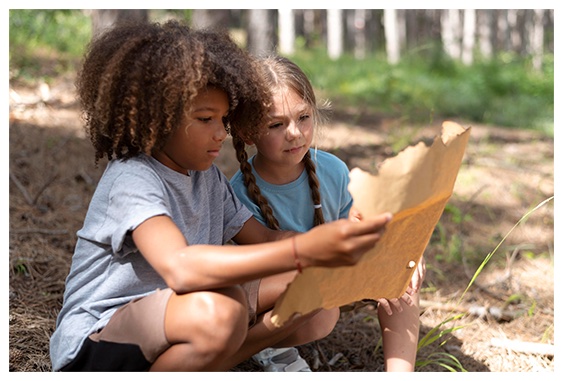
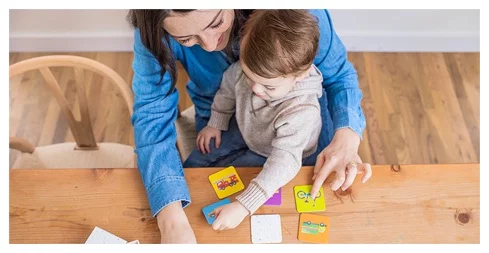
4. Face Memory Game
This is another great game for the brain. Memory games improve visual scanning skills and spatial memory. You can download a free printable PDF or draw your own memory cards.
5. Obstacle Course
Turn your home into a full obstacle course with jumping, hopping, skipping, and running. Obstacle courses are easy to set up. While they look more like agility training and sports games, they are basically some of the best mind games.
Start with simple obstacles using household supplies (non-dangerous supplies), and then increase the complexity as your kids’ progress.
These games improve your kids’ gross motor skills, visual perception, motor planning, coordination, language skills, critical thinking, and more.
A typical obstacle course includes some of the following tasks: something to walk on, crawl through, crawl under, jump, throw, hop, solve a riddle, and more.
6. Human Thesaurus
Have you ever used thesaurus? It is a great tool for finding synonyms of a designated word. Well, who needs a tool when you can play it with your kid? Simply choose a word, and then think of as many synonyms as you can.
If you want to make it competitive, set up a timer and come up with as many different words as possible within that time.
7. Nesting and Stacking Toys
These games are designed for kids between two and four years of age. They are important in early learning development.
While these toys are simple, they give your kids a great brain booster. The motion of stacking and nesting helps kids improve their fine motor skills, spatial perception, visual perception, balance, coordination, and more.
Sometimes, the simplest games are the most beneficial ones. Remember to talk and keep the conversation going with your children while playing. For example, ask questions to encourage their brain to work, like “what goes next,” “where does this toy fit,” “where does this toy go,” “does this toy fit into this cup,” and more.
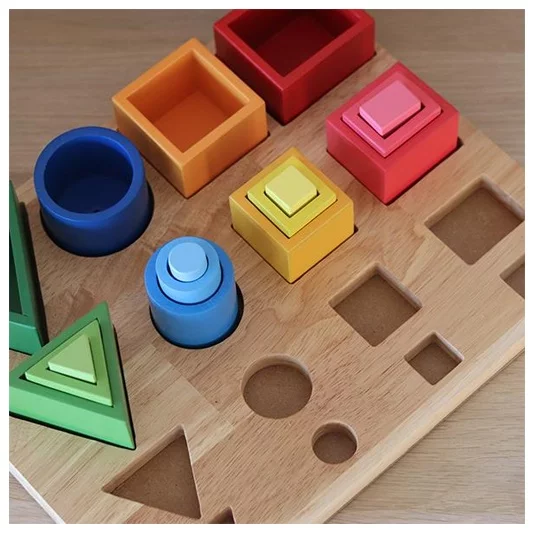
8. Not Three of a Kind
This is another simple brain training game for kids you can play anywhere and anytime. And you do not need any materials, tools, or anything else. Just you and your kid talking and playing.
The premise is simple. One person names 3 similar objects. The other player has to figure out how one of them dos not fit in that group.
Here is an example: dog, cat, and lion. The first two are domestic animals, while a lion is a wildlife animal.
9. Pretend Play Kits
You can find many pretend play kits online. These games are sometimes called role-play games, and are great for brain development. The games help your kids develop language skills, emotional skills, and social skills.
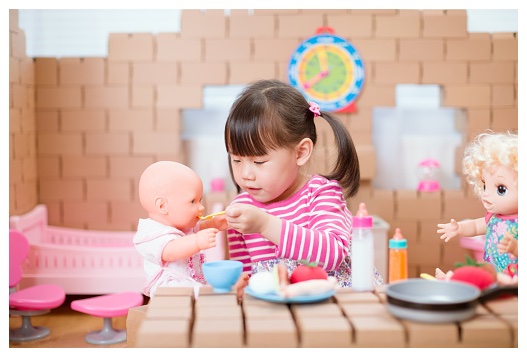
10. Escape Room Games
We have seen a rise in the popularity of escape room games in the past several years. And in that spirit, people have turned to printable escape room kits. Nowadays, you can turn any room in your home into an escape room.
All you have to do is download a printable PDF kit and play. With lots of puzzles and challenges, these games offer quite a lot of fun for the kids. They also improve their critical thinking and problem-solving skills. An underrated element of escape room games is they encourage teamwork.
Our ready-to-play game kits
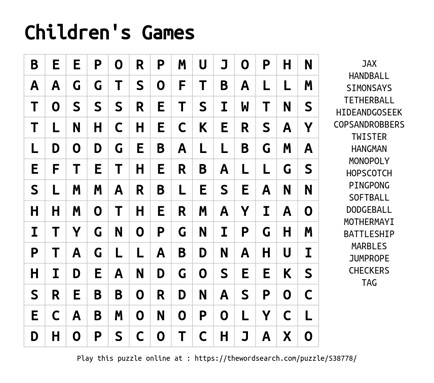
11. Word Hunt
In this game, you need flashcards with pictures. They need to be matched with the corresponding word that describes them.
For example, if a flashcard has a picture of a cat, your kid has to match it with the word “cat.” These flashcards come in different categories, from animals, plants, flowers, household objects, and many more.
12. Find That Thing
Similar to Word Hunt, this game has one simple difference. It requires physical activity on your child’s part. It is best that you play it in an open area, such as the park. Take out the flashcard and let your kid find the object mentioned on the flashcard.
For example, the word might be “park bench.” Your kid has to find a park bench in the park.
13. Die Wars
This is a math game. Mathematics and brain games go hand in hand. These math games help children with their numeric skills. Dice wars is one of the best and simplest.
For this game, you need one die and some counting elements. You can use buttons, seeds, or pebbles as counting elements.
14. One-Word Story
This is a great game for improving vocabulary, concentration, and communication. The premise is simple. You have to narrate a story using one word at a time. If you want, you can simplify the game by narrating the story one sentence at a time.





